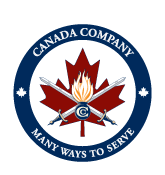Last month, we explored the reasons why many former military personnel are turning to the transportation industry for attractive and secure employment opportunities. Many of their skills and much of their training are transferable to other industries, including a career in trucking. We discussed what makes military personnel compatible and what benefits the transportation industry has to offer those entering civilian life.
At CHET, we welcome former military personnel. They have proven themselves to be disciplined quick learners who can think on their feet and navigate stressful and potentially dangerous situations. CHET has taught students who were formerly military personnel and Musket, our parent company, has hired employees with a military background.
One student currently enrolled in the CHET program was kind enough to sit down and give us insight into his background, his decision to pursue a career in trucking, and his experience thus far in CHET driver’s training.
Interview with CHET Student & Former Military Personnel: Richard C.
Since the completion of this interview, Richard C graduated from CHET’s program and is now driving for Musket Transport Ltd.
Background: A native of Hamilton, Ontario, Richard enlisted in the military at 23. He served from 1988 to 1995. Today, Richard is a recent graduate a student completing the CHET Driver’s Training program. We sat down with Richard to learn about what inspired him to join the military and his decision to transition into a career in transportation.
What motivated you to join the Canadian military?
I was looking for an opportunity to advance my education and training while earning while I learned.
What part of the military did you join?
The Canadian Armed Forces – Land (Army) Signals (M.O.C 211).
Where have you been stationed?
I was posted to Kingston, Ontario, but also served in many other locations including Doha, Qatar; Nairobi, Kenya; and Kigali, Rwanda.
What are the top skills you learned in the military?
At the time, the military was in its infancy in regard to computer systems. I was lucky enough to work in the 1st Canadian Divisional Headquarters. The diverse skills I learned led to a 25 year career in Information Technology Management.
Why did you decide to enter civilian life and seek a career path outside the military?
I would have remained in the military as I enjoyed the work and environment, however the strain on family relationships became too difficult. Commitment to family must come first.
What attracted you to a career in transportation?
I was aware of the high demand and shortage of qualified professional drivers in the transportation industry during the current economic downturn. As a professional driver, you have the unique opportunity to work from your own mobile office (your truck) and the ability to work flexible hours.
How did you decide on CHET driver academy?
I reviewed a number of schools and their curriculums. CHET provided a complete 10-week training package with theory and practical skills application, with all training provided by qualified instructors. The CHET course is TTSAO certified and provides practical “In Cab” driver training in modern Volvo equipment. Graduates of CHET are invited to join Musket Transport as company drivers or independent contractor drivers.
What skills did you learn in the military that you think are or will be transferable to your career in trucking?
My experience in the military taught me to be self-sufficient and professional in all my endeavours. Opportunity and reward are directly proportional to the effort you apply in all aspects of your life. Continued learning is a lifelong process.
The transportation industry provides an opportunity to apply your skills, learn new skills, and have abundant employment opportunities for the next 20 years. There are a number of professional drivers still working into their 70s not because of financial demands but because of their love of the job.
What have you enjoyed most about CHET training?
The training provided at CHET has the familiar feel of military trade qualification training. CHET training is provided in a logical format: Learn the theory, learn the skill, apply the skill through practical training, demonstrate competency in all skills and complete Ministry testing.
What would you say to military personnel considering a career in transportation?
Most military personnel receive advanced driver training as part of their trade qualifications. The transportation industry allows you to apply and build on those skills. Employment opportunities in the transportation industry are plentiful due to the shortage of professional drivers.
What are your plans after graduation?
I completed my training at CHET on May 30 May, 2016, and have accepted the invitation to join Musket Transport as a professional company driver.
***
We also sat down with our Fleet Resources Manager at Musket Transport to identify the reasons why he considers the skills and experience of former military personnel to be invaluable, useful assets in a career on the road.
Interview with Our Fleet Resources Manager: Anthony D.
Background: Anthony has been working at Musket for about 13 years. He is well-known for his years of outstanding service at the Southdown Yard where he helped to make Southdown a model operation. Anthony assists in revamping and reorganizing many different areas of operation including:
- Garage & Facility Management
- Maintenance Staff Training, Coordination and Support
- Service Department Liaison with Human Resources and Safety Depts.
- Accident and Damage Assessment and Cost Recovery
- Scheduled Fleet Maintenance
- Equipment Assessment, Modernization and Procurement
- Fleet Data Compilation and Analysis
- Dealer Relations and Supplier Performance Assessment
- Special Projects & Experiments
- And many more!
Describe your professional background prior to joining Musket?
“Where to begin… I was an authorized IBM and Apple technician for 6 years. I was a mail search manager for Purolator Canada for 12 years where I oversaw 700 employees. It was a very exciting and dynamic position. I drove a construction truck and purchased construction parts for 3 years at Finspan Construction Company. Finally, I worked as a crane operator and assistant yard manager at Musket Transport for six years. I was promoted to Fleet Resources Manager in 2008.”
Describe your current role and responsibilities.
In a nutshell, my job is to keep the equipment rolling and coordinate maintenance issues, better pricing and services from all of our vendors. I address training issues for our staff as well as coordinate smooth operations between various departments that require garage services.
What attracted you to a career in the transportation industry?
I’ve always been very good at being in a chaotic environment and creating order. It’s appealing because every day and every moment is different. I enjoy the constant challenge.
What do you think sets CHET apart from other driver training programs?
CHET is laser focussed on taking the student from the beginning to becoming a complete “trucker”. The most unique aspect of CHET is that its students can be hired by its parent company, Musket Transport Ltd., allowing them to start earning an income in a short period of time. We expect our average drivers to be making at least $50,000. In association with CHET and Musket, we are well positioned to help drivers earn $80,000 with the systems that we’ve put in place.
How many CHET students have a military background?
At least 6 of our drivers that I know of have a military background. We have also had staff at Musket with military backgrounds.
What military skills do you think are transferable to a career in trucking?
Anybody that has been trained in equipment movement, logistics, or heavy equipment training for transport or combat has an advantage. This experience translates to a an understanding of various diverse control systems.
The discipline and psychological training military personnel receive influences their ability to deal with high stress traffic and complicated manoeuvres on the road. For example, imagine you’re working for the container division in the middle of the winter. You’re coming into a yard with freezing rain and you have to position yourself so that a crane can lift your container. This takes nerves of steel.
As another example, those with military training should be able to operate various trailing equipment such as b-trains, flat beds, cranes, graders, front-end loaders and other construction equipment. This gives them a great advantage.
What qualities/traits do former military personnel possess that will help them succeed in a career in trucking?
I would say the most noteworthy quality is focus. Individuals with a military background are usually keen on completing the specific task at hand. If they don’t understand it, they ask for clarification and execute the task. This skill benefits a drivers when they receive a dispatch. They have to quickly determine what equipment is required and if the time requirement from the customer can be met. Other important qualities that former military personnel bring to the table are steadfastness, always being on time, and determination to overcome personal hardships to get the job done. These qualities are a paramount requirement for anyone operating any heavy equipment of any kind.
What would you say to military personnel considering a career in transportation?
I would tell them that over the years, more and more businesses are doing “just in time” deliveries and very few are storing anymore. This places a huge demand on the trucking industry. There are not enough skilled drivers available to do the job. The beauty of holding an AZ license in North America is that anywhere you go you have transferable skills and can always find a job. If a person in Canada receives their red seal certificate, they can work anywhere in Canada.
CHET is honoured and thrilled to be a part of Canada Company’s Military Employment Transition (MET) Program as one of their educational partners. We recognize the many valuable, transferable skills and qualities the military community can bring to the transportation industry. For that reason, we encourage individuals with (and without) a military background who are transitioning to a civilian career to join our driver training academy.
Our practical, comprehensive curriculum meets the highest standards set by the Ministry of Training, Colleges and Universities. Upon graduation and successfully passing their AZ Road Test, CHET student can secure employment with our parent company, the Musket Transport Ltd.
At CHET, we are committed to empowering students to develop the skills they need to secure lucrative employment upon graduation. If you or someone you know with a military background is transitioning to civilian life and considering employment opportunities, learn more about CHET today!
We are a proud MET Educational Partner. The Military Employment Transition Program is run by Canada Company to ensure that military personnel transitioning into civilian life are connected with training and job opportunities.
Canada Company is a charitable, non-partisan organization that serves to build the bridge between business and community leaders and the Canadian Military. Our goal is to ensure that the men and women in our Canadian Armed Forces receive the widest support, care and recognition that they deserve.

At CHET, we believe that veterans and military personnel are a perfect fit in the transportation industry, particularly as drivers. For more information visit: Canada Company’s website describing the MET Program and their Educational Partners/Opportunities.




